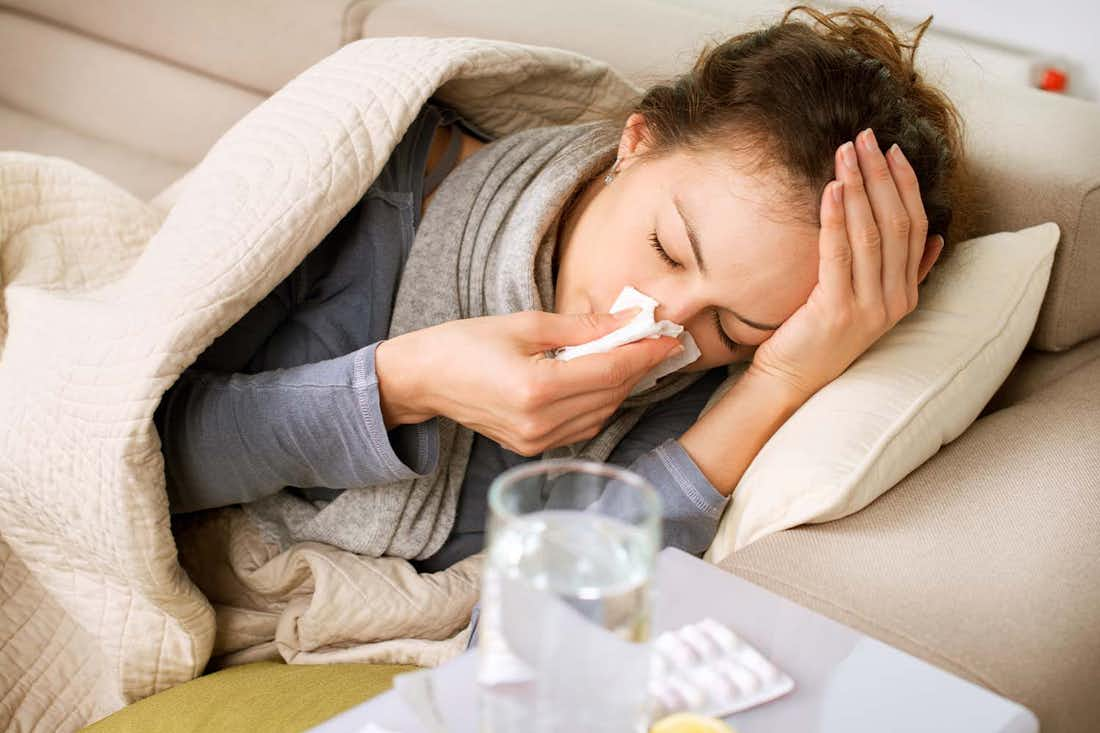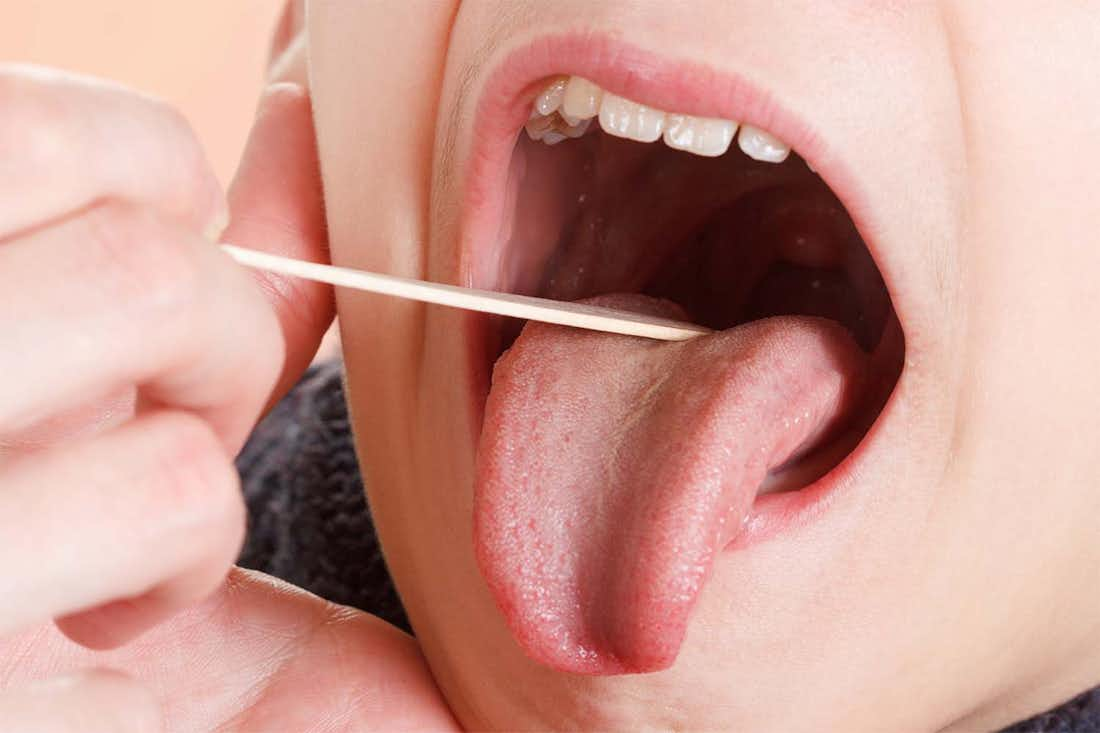Sep 29, 2021
Everything You Need to Know About Fall Allergies
5 minute read
Fall allergies can be bothersome and irritating, and the dry, cool months of the year are often some of the toughest for allergy sufferers. Plus, allergy symptoms that pop up in the fall can be confusing – where are all the sneezes coming from if there’s no more spring and summer pollen?
If you’re scratching your head over why you’ve still got allergies when there’s less pollen in the air, we’ve got answers for you! At Cleared, we’re passionate about getting you informed about the causes of your allergy symptoms. That way, you’ll be fully equipped to tackle those pesky allergies and beat them once and for all.
We’ll give you the inside scoop on everything you need to know about fall allergies, including causes, symptoms, treatment options, and more. Make sure to stick around until the end to learn about how Cleared can help you deal with your fall allergies!
What Causes Fall Allergies?
We wish there were one simple, catch-all explanation for your autumnal allergy symptoms, but the reality of the matter is sadly a bit more complex. Like all forms of seasonal allergies, fall allergies often have multiple causes. However, there are some factors that tend to have the biggest impact on your symptoms.
Below, we’ll unpack some of the most common causes of Fall allergies and explain a bit about why they can make your symptoms worse.
- Mold. While mold is often thought of as a fungus that thrives in the dark, damp corners of indoor spaces, it’s also found in abundance outdoors. And what’s one of the hotspots for mold in the fall?
You guessed it – dead leaves. Leaves drop from the trees for a few weeks during the fall, and then these leaves collect on the ground and gather moisture. This moisture can make piles of leaves the perfect places for mold to grow, exacerbating your outdoor allergy symptoms.
- Ragweed. Ragweed pollen blows in the wind in the late summer and early fall, especially during August, September, and October. This plant typically releases pollen at times when the wind blows strongest, and this pollen can blow for miles.
That means that even if there’s no ragweed growing near you, you may still be experiencing symptoms due to the plant’s pollen. In addition, ragweed allergy symptoms can sometimes be exacerbated by eating certain foods, including melon, zucchini, bananas, and more.
- Dust Mites. These tiny microscopic creatures live in carpets, bedsheets, and other soft surfaces and feed on the dead skin that humans shed. Nasty, right? Sadly, it gets a little worse. Some people are allergic – or at least extra sensitive – to dust mites, which can cause symptoms like runny noses, watery eyes, rashes, hoarseness, and more.
So, now that you know the primary culprits behind your fall allergies, let’s talk about the symptoms you might be experiencing – and what to do about them.
The Big Fall Allergy Symptoms
Seasonal allergies can cause a plethora of symptoms, ranging from mildly uncomfortable to incredibly frustrating and stubborn. Below is a list of some of the most common symptoms that you might experience as a result of fall allergies.
- Watery eyes
- Runny nose
- Coughing & Sneezing
- Itchy eyes, itchy nose
- Dark circles under your eyes
- Worsening asthma symptoms
All of these symptoms can also stem from the common cold, which can make it difficult to identify allergy symptoms at first. However, there’s a big difference between cold symptoms and allergy symptoms – your cold typically won’t last more than a week, whereas allergies can linger for months.
If you’re dealing with the symptoms listed above daily and have been for a long time, you’re likely dealing with allergies. If you suspect that allergies are the cause of your long-term struggles, it’s a great idea to take an allergy test with Cleared!
Getting a Diagnosis
A healthcare professional can officially diagnose you with allergies by performing a skin test. This test involves exposing you to a small amount of a common allergen, then observing to see if your skin reacts. Although it can be a bit uncomfortable, the allergy test is a good way to determine what’s causing your symptoms.
With Cleared, you can get a diagnosis and treatment plan for your allergies from the comfort of your home. Our experienced allergists are ready to walk you through the process of taking an at-home allergy test and finding the treatment that works best for you.
How Are Fall Allergies Treated?
Allergies aren’t a serious threat to your health, but they sure can be uncomfortable. That’s why finding a treatment that works for you is always worth the time and effort spent – it’ll up your quality of life and let you (literally) breathe easy again.
There are plenty of treatment options out there for seasonal allergies, but we highly recommend a combination of immunotherapy medication, anti-inflammatories, and immune support supplements. Curious about what these treatments are? We’ve got all the info you need.
Immunotherapy treatments help build up your resistance to allergens in the long run. Cleared offers targeted immunotherapy treatments for allergies to grass pollen, dust mites, and ragweed.
Relief medications target your allergy symptoms on a daily basis. These treatments can be prescribed by an allergist, who will recommend a treatment based on your symptoms and the allergens that trigger them.
Conclusion
Want to learn more about what Cleared can do for you? Make sure to check out our 5-minute allergy quiz. This intuitive assessment helps us get a sense of what allergy symptoms you are dealing with, as well as how we can help you on your journey to beating your allergies once and for all.
Sources:
Fall Allergies 101: Symptoms, Causes, and Treatments | UNC Healthcare
Pollen Overload: Seasonal Allergies in a Changing Climate | NCBI
Seasonal Allergies Are Worse This Year—Why and What You Can Do About It | Yale Medicine
Authors

Dr. Payel Gupta
Medically reviewed by Dr. Payel Gupta



